Photo: Taylor Hill/WireImage
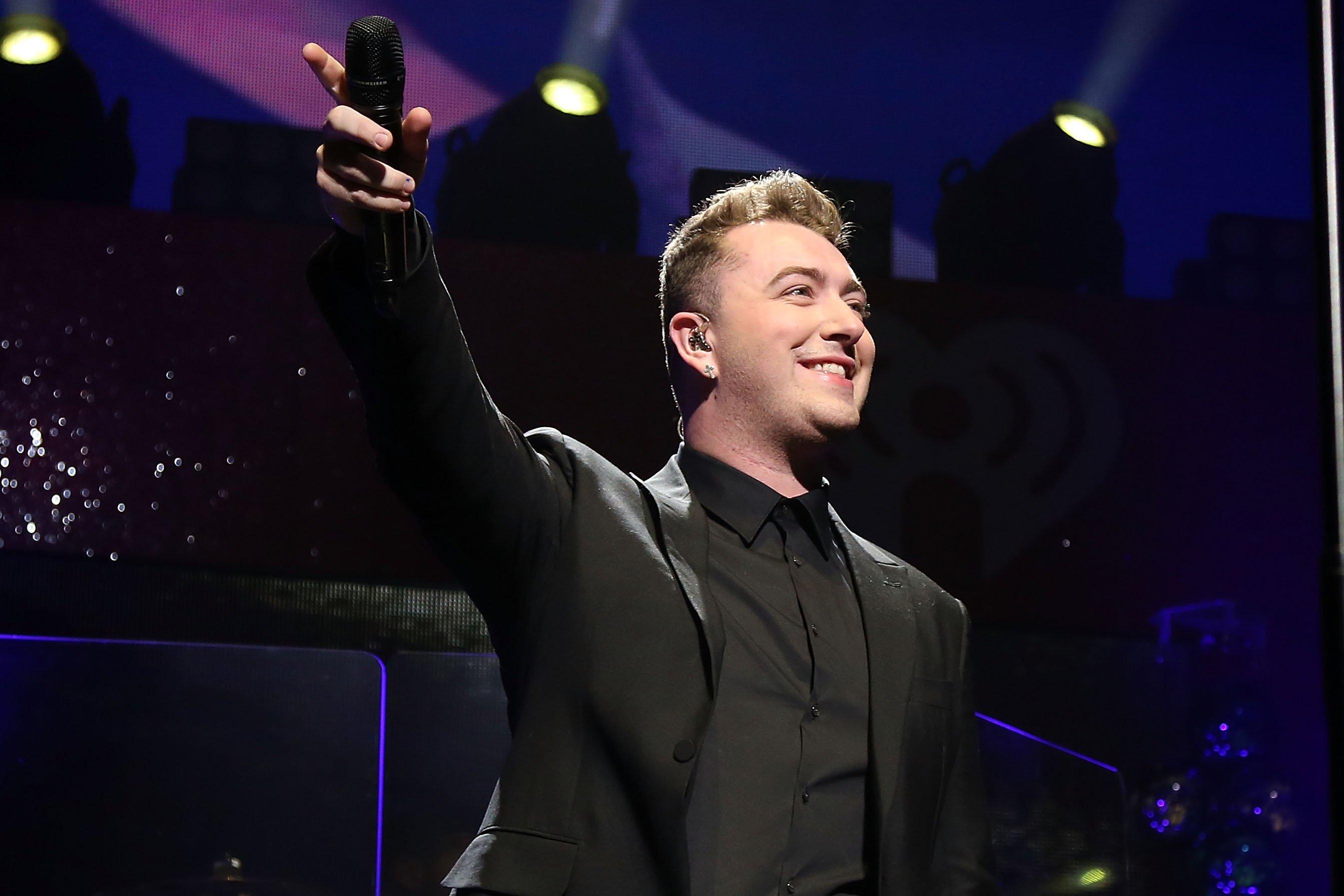
list
How Sam Smith's 'In The Lonely Hour' Became An LGBTQIA+ Trailblazer
As Sam Smith’s massive debut album turns 10, revisit some of the ways it broke ground for the LGBTQIA+ community — from supporting same-sex marriage to making GRAMMY history.
Before launching their own solo career, Sam Smith had already teased their pop prowess by guesting on two bonafide dance classics, Disclosure's deep house anthem "Latch" in 2012 and Naughty Boy's two-step garage throwback "La La La" in 2013. And upon debuting their own work in 2014 with In The Lonely Hour, Smith instantly cemented themselves as the master of the heartbreak ballad — and one of pop's new pioneers.
Self-described as the "diary from a lonely 21-year-old," the record was inspired by the love Smith felt toward an unnamed man which, it seems fair to say, wasn't exactly reciprocated. "I don't have that many sad things going on in my life and it was the only thing that was really affecting me last year," they explained to Digital Spy ahead of In The Lonely Hour's release. "So, it's my way of defining what is love, and how unrequited love is just as painful, just as powerful, as what we call 'normal' love." And audiences both in their homeland and across the pond immediately latched on to its overarching theme.
Largely produced by hitmaking extraordinaire Jimmy Napes (Clean Bandit, Mary J. Blige), In The Lonely Hour reached No. 1 in the UK and No. 2 on the Billboard 200, spawned five hit singles, and, in an era when the album format was commercially struggling, sold a remarkable 8.5 million copies across the globe. And alongside the chart success, the sold-out tours, and the four GRAMMY wins on the same night, the blockbuster LP also became a force for good, and a force for change, within the LGBTQIA+ community.
A decade on from its stateside release (June 17), we take a look at why In The Lonely Hour was such a landmark album for the music industry as a whole, but especially for a new queer generation.
It Made GRAMMY History
Smith famously put their foot in their mouth while picking up Best Original Song at the 2016 Academy Awards for Bond theme "Writing's On the Wall," wrongly declaring — much to Milk screenwriter Dustin Lance Black's disdain — that they were the first ever openly gay Oscar winner. However, the Brit can lay claim to being an LGBTQIA+ trailblazer at the GRAMMYs.
The year before his acceptance speech faux pas, Smith became the first member of the LGBTQIA+ community to win Best New Artist. The singer also won Best Pop Vocal Album for In the Lonely Hour, while "Stay With Me" was crowned both Record and Song Of The Year. (Eight years later, Smith then made history again as the first ever non-binary GRAMMY winner when their Kim Petras collaboration "Unholy" scooped Best Pop Duo/Group Performance in 2023.)
It Used Gender Neutral Pronouns
The use of pronouns has played a big part in Smith's career. And though they officially announced their they/them change in 2019, the singer refused to commit to a particular gender on their debut album. While In The Lonely Hour was based on their infatuation with an uninterested man, the Brit purposely left things ambiguous, as they explained to Fader at the time of its release.
"[It's] important to me that my music reaches everybody. I've made [it] so that it could be about anything and everybody — whether it's a guy, a female or a goat — and everybody can relate to that." This inclusive approach has also been adapted by several other artists, including singer/songwriter Bruno Major, whonoted how Smith's material "can be listened to by anybody of any sexuality and gender and still apply."
It Advocated For Same-Sex Marriage
While Smith kept all pronouns neutral on record, they were far more specific when it came to In The Lonely Hour's visuals. In the tearjerking video for "Lay Me Down," a flashback shows the Brit getting hitched to their boyfriend in the same church where the latter is later laid to rest. Although gay marriage had been made legal in the UK a year prior to the video's 2015 release, it was still illegal for same-sex couples to wed within the Church of England.
In a Facebook message posted to coincide with its premiere, Smith said, "This video shows my dreams that one day gay men and women and transgendered men and women all over the world, like all our straight families and friends, will be able to get married under any roof, in any city, in any town, in any village, in any country." Smith later performed the album's biggest hit, "Stay With Me," in front of President Joe Biden at the 2022 signing of the Respect for Marriage Act.
It Ventured Into Cishet Territory
Before Smith came along, the modern heartbreak ballad — the kind of emotionally devastating anthem that can reduce an entire stadium crowd to a blubbering wreck — had typically been the domain of heterosexual/cis-identifying artists such as Adele and Ed Sheeran.
However, thanks to radio-friendly chart hits such as "Lay Me Down," "Stay With Me," and "I'm Not The Only One," In The Lonely Hour proved mainstream audiences, no matter their sexual orientation or gender, could be equally moved by candid tales of queer love. Smith's lyrical themes may have been specific to their own situation, but they could just as easily be interpreted on a universal level. Soon after, LGBTQIA+ singers such as "Britain's Got Talent" graduate Calum Scott and Eurovision Song Contest winner Duncan Laurence were mining a similar tragi-romantic path to hugely commercial effect.
It Channeled A Feminine Energy
The tactile way Smith addressed their unrequited love — not to mention, how much it was embraced by the mainstream — meant that In The Lonely Hour wasn't considered an explicitly LGBTQIA+ album at the time. Yet, the singer insists they were deliberately trying to challenge notions of gender, sexuality and masculinity.
Speaking to Out five years after the album's release, Smith revealed it was, in fact, partly influenced by one of the all-time gay icons. "I'm in a suit and in that suit, I was channeling Judy Garland. I look back on those videos of me when I was 20, and I see a feminine energy." They further explained they were surprised when the record wasn't initially interpreted as intended. But thanks to Smith's non-binary journey, the album's inherent queerness has unarguably now become more apparent.
It Opened The Door For Several LGBTQIA+ Artists
Smith confirmed they were gay in the same week In The Lonely Hour hit the shelves, acknowledging the record was "about a guy that I fell in love with last year, and he didn't love me back." And the matter-of-fact way they spoke about their sexuality inspired several other artists to follow suit.
In 2017, Troye Sivan cited Smith as a role model for coming out without making any grand gestures. Years and Years frontman Olly Alexander has also applauded his fellow Brit for refusing to hide their true identity. Even some of Smith's collaborators, including Petras and Cat Burns, have touted the singer's self-assurance.
Indeed, while artists in less enlightened times often felt compelled to keep their sexuality under wraps, Smith has been able to express their true self from the outset. As a result, a generation of artists have seen that queerness needn't be a barrier to commercial success — and that celebrating it can change culture in a powerful way.
Listen To GRAMMY.com's 2024 Pride Month Playlist Of Rising LGBTQIA+ Artists
PRIDE & Black Music Month: Celebrating LGBTQIA+ & Black Voices
Listen To GRAMMY.com's 2024 Pride Month Playlist Of Rising LGBTQIA+ Artists
9 New Pride Anthems For 2024: Sabrina Carpenter's "Espresso," Chappell Roan's "Casual" & More
What's The Future For Black Artists In Country Music? Breland, Reyna Roberts & More Sound Off
Why Beyoncé Is One Of The Most Influential Women In Music History | Run The World
9 Ways To Support Black Musicians & Creators Year-Round
How Beyoncé Is Honoring Black Music History With 'Cowboy Carter,' "Texas Hold Em," 'Renaissance' & More
The Evolution Of The Queer Anthem: From Judy Garland To Lady Gaga & Lil Nas X
15 LGBTQIA+ Artists Performing At 2024 Summer Festivals
50 Artists Who Changed Rap: Jay-Z, The Notorious B.I.G., Dr. Dre, Nicki Minaj, Kendrick Lamar, Eminem & More
Fight The Power: 11 Powerful Protest Songs Advocating For Racial Justice

How Rihanna Uses Her Superstardom To Champion Diversity | Black Sounds Beautiful

How Beyoncé Has Empowered The Black Community Across Her Music And Art | Black Sounds Beautiful
5 Women Essential To Rap: Cardi B, Lil' Kim, MC Lyte, Sylvia Robinson & Tierra Whack
Celebrate 40 Years Of Def Jam With 15 Albums That Show Its Influence & Legacy

Watch Frank Ocean Win Best Urban Contemporary Album At The 2013 GRAMMYs | GRAMMY Rewind
A Brief History Of Black Country Music: 11 Important Tracks From DeFord Bailey, Kane Brown & More
10 Women In African Hip-Hop You Should Know: SGaWD, Nadai Nakai, Sho Madjozi & More
10 Artists Shaping Contemporary Reggae: Samory I, Lila Iké, Iotosh & Others
The Rise Of The Queer Pop Star In The 2010s
How Sam Smith's 'In The Lonely Hour' Became An LGBTQIA+ Trailblazer
How Queer Country Artists Are Creating Space For Inclusive Stories In The Genre

How Jay-Z Became The Blueprint For Hip-Hop Success | Black Sounds Beautiful

How Kendrick Lamar Became A Rap Icon | Black Sounds Beautiful
Dyana Williams On Why Black Music Month Is Not Just A Celebration, But A Call For Respect
6 LGBTQIA+ Latinx Artists You Need To Know: María Becerra, Blue Rojo & More
7 LGBTQ+ Connections In The Beatles' Story
Breaking Down Normani's Journey To 'Dopamine': How Her Debut Album Showcases Resilience & Star Power
10 Alté Artists To Know: Odunsi (The Engine), TeeZee, Lady Donli & More

Celebrating Black Fashion At The GRAMMYs Throughout The Decades | Black Music Month
FLETCHER Is "F—ing Unhinged" & Proud Of It On 'In Search Of The Antidote'
For Laura Jane Grace, Record Cycles Can Be A 'Hole In My Head' — And She's OK With That
15 Essential Afrorock Songs: From The Funkees To Mdou Moctar
50 Years In, "The Wiz" Remains An Inspiration: How A New Recording Repaves The Yellow Brick Road
Why Macklemore & Ryan Lewis' "Same Love" Was One Of The 2010s' Most Important LGBTQ+ Anthems — And How It's Still Impactful 10 Years On
Songbook: The Complete Guide To The Albums, Visuals & Performances That Made Beyoncé A Cultural Force

Why Cardi B Is A Beacon Of Black Excellence | Black Sounds Beautiful
Queer Christian Artists Keep The Faith: How LGBTQ+ Musicians Are Redefining Praise Music
9 Revolutionary Rap Albums To Know: From Kendrick Lamar, Black Star, EarthGang & More
9 "RuPaul's Drag Race" Queens With Musical Second Acts: From Shea Couleé To Trixie Mattel & Willam
5 Black Artists Rewriting Country Music: Mickey Guyton, Kane Brown, Jimmie Allen, Brittney Spencer & Willie Jones
How 1994 Changed The Game For Hip-Hop

How Whitney Houston’s Groundbreaking Legacy Has Endured | Black Sounds Beautiful
LGBTQIA+-Owned Venues To Support Now

Celebrate The Genius Of Prince | Black Sounds Beautiful

Explore The Colorful, Inclusive World Of Sylvester's 'Step II' | For The Record
Black-Owned Music Venues To Support Now
5 Artists Fighting For Social Justice Today: Megan Thee Stallion, Noname, H.E.R., Jay-Z & Alicia Keys
Artists Who Define Afrofuturism In Music: Sun Ra, Flying Lotus, Janelle Monae, Shabaka Hutchings & More
5 Trans & Nonbinary Artists Reshaping Electronic Music: RUI HO, Kìzis, Octo Octa, Tygapaw & Ariel Zetina
From 'Shaft' To 'Waiting To Exhale': 5 Essential Black Film Soundtracks & Their Impact
5 Emerging Artists Pushing Electronic Music Forward: Moore Kismet, TSHA, Doechii & Others
5 Artists Essential to Contemporary Soca: Machel Montano, Patrice Roberts, Voice, Skinny Fabulous, Kes The Band

How Quincy Jones' Record-Setting, Multi-Faceted Career Shaped Black Music On A Global Scale | Black Sounds Beautiful
5 Black Composers Who Transformed Classical Music
Brooke Eden On Advancing LGBTQ+ Visibility In Country Music & Why She's "Got No Choice" But To Be Herself
Let Me Play The Answers: 8 Jazz Artists Honoring Black Geniuses
Women And Gender-Expansive Jazz Musicians Face Constant Indignities. This Mentorship Organization Is Tackling The Problem From All Angles.

Histories: From The Yard To The GRAMMYs, How HBCUs Have Impacted Music
How HBCU Marching Band Aristocrat Of Bands Made History At The 2023 GRAMMYs
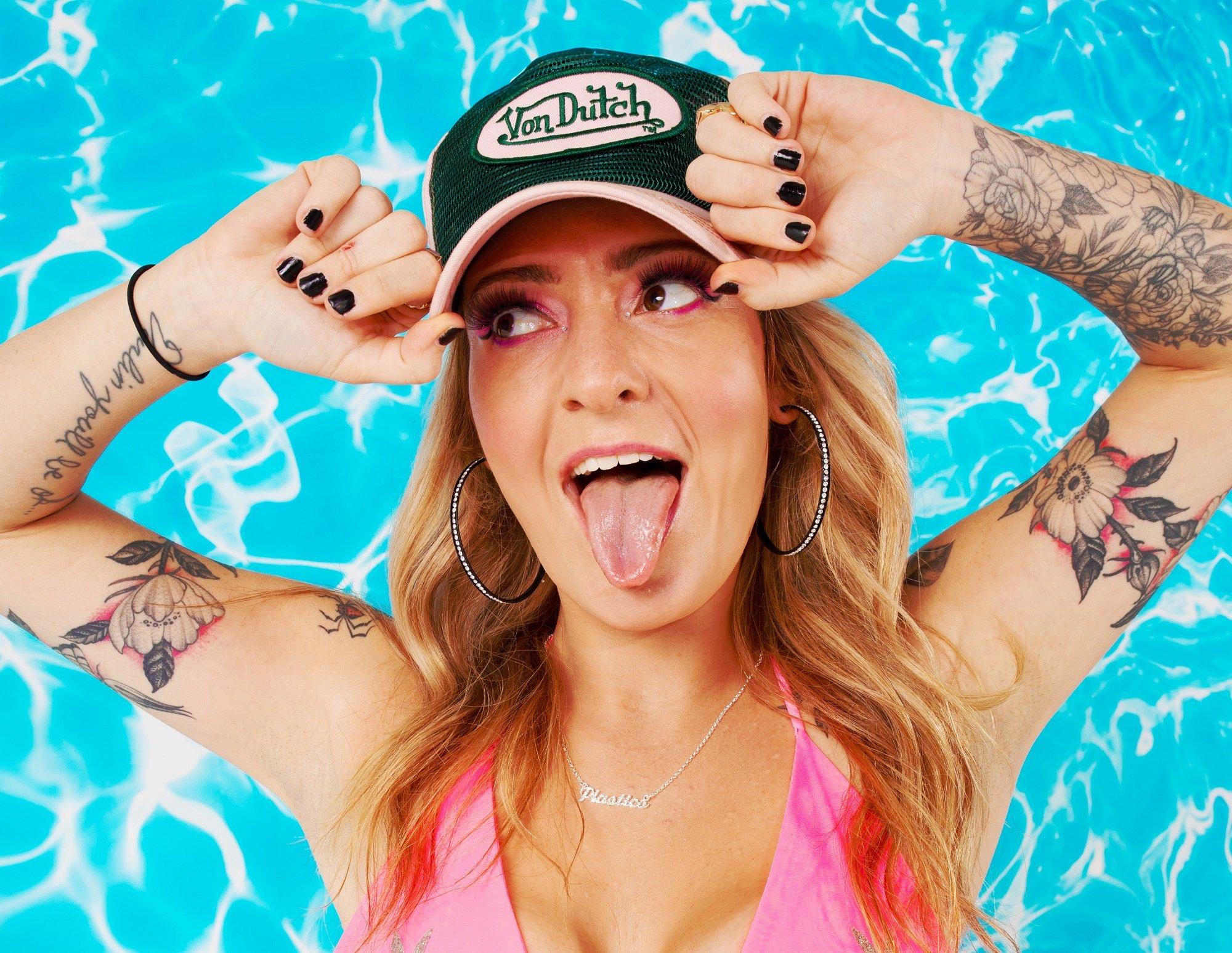
Photo: Danin Jacquay
interview
Meet Scene Queen, The "Chaotic Mess" Cleaning Up The Alternative Scene
"I'm cool taking sticks and stones thrown my way if it means that 10 years down the line there's gonna be another girl that tries to do what I do and gets zero flak for it," Scene Queen says of her take-no-prisoners album, 'Hot Singles In Your Area.'
"F*** the scene, I’m the queen!" Scene Queen announces early on her debut album, Hot Singles in Your Area. Delivered in a snarky sing-song, the exclamation serves as something of a mission statement for everything the singer has set out to accomplish with her winking metal-pop persona.
On Hot Singles (out June 28 via Hopeless Records), the artist calls out the bad behavior that’s run rampant in the alternative music scene for decades. From the insidious grooming of teen fans ("Headline spot goes to the abuser/ Half my idols are f—ing losers," she sings on blistering lead single "18+"), to the blatant discrimination experienced by female artists in the genre (opener "BDSM"), and date rape drugs and sexual assault ("Whips and Chains") — Scene Queen takes unflinching aim.
Born Hannah Collins, Scene Queen isn’t out to destroy the genre she grew up loving as a Warped Tour-obsessed teenager in suburban Ohio. Instead, she’s using her perspective as a queer female artist and knack for razor-sharp songwriting to make the scene safer, more accountable and, ultimately, more inclusive.
Featuring high-octane collaborations with the likes of The Ready Set ("POV"), WARGASM ("Girls Gone Wild") and 6arelyhuman ("Stuck"), Hot Singles in Your Area is also an unabashed pleasure ride that introduces listeners to Scene Queen’s unique brand of sexual freedom, self-love, queer pride and self-deprecating humor.
"My fans know that I'm playing into the joke of it a lot," Collins says from her home in L.A. "But a lot of people still don't understand it."
Ahead of her album release, Scene Queen opened up exclusively to GRAMMY.com about finding her voice in the metal space, the pop icons who inspired her persona (from Britney Spears to Paris Hilton, Dolly Parton, and Jessica Simpson), standing up to misogynists, homophobes and haters, and more.
How does it feel to be on the verge of finally releasing your debut album?
Really exciting! But also terrifying in a way. With [2022 EPs] Bimbocore Vol. 1 and Vol. 2, I feel like I told the story of, "Who is Scene Queen? What is this project?" Like, she's very loud and out there and opinionated, and in your face and whatever.
But this record touches on everything in my life that happened for me to become this version of myself — why I needed to become Scene Queen. I made a whole record about being independent and reclaiming my power and sticking up for myself and sticking up for people in the scene…In a weird way, I'm making jokes this entire album, but it’s a vulnerable album in the sense that I'm revealing a lot via the lens of humor.
How did the Scene Queen persona come about?
I grew up in the alternative space. Like, I went to a million Warped Tours and all of that stuff. I was at shows in Cleveland, like, every weekend during high school. I've been listening to bands like Hawthorne Heights and stuff since I was 8 or 9 years old. So when I was 18, I moved out to L.A. from Ohio, and that was around the time that all of these bands started dropping members left and right because they were finally getting called out for, like, predatory behavior or what have you — just being, generally, not great people.
Coming into adulthood, you start looking at things through a different lens, like, Oh, that was a weird interaction or Oh, I feel weird that they let me do that at 16 years old. It really felt like, as a woman, the scene wasn't a safe space for me anymore. Then suddenly, during COVID, the only thing I wanted to listen to was, like, super alternative music.
TikTok introduced me to a lot of bands like The Home Team, that were combining pop-punk with, like, R&B — I always loved that experimental stuff. And I was listening to a ton of BABYMETAL and WARGASM, experimental metal-pop stuff. But I told myself the only way I would come back into the alternative space was if I did it on the terms of what I wished I’d had in the scene growing up.
So now I operate my entire persona as this elevated version of myself because I feel like people need that. Scene Queen is like a superpower for me in a way — she helps in my day-to-day life as Hannah, too.
What makes the Y2K era such a key element of the Scene Queen aesthetic?
Growing up in that time, super hyper-feminine women were often vilified, especially in rock music. If you were super girly at a show, people would assume that you were there to sleep with the band. Like, you weren't as worthy of being there as a man. When I was in high school, I actively chose to dress in mostly all black because I just didn't think I would be taken seriously.
So I wanted to pull that whole era into it and just be like, I'm actively going against everything I grew up with and what the scene told me was acceptable. And now I'm gonna be the antithesis of what any of the people that were misogynistic — or also just underestimated me — would want from me. And now I make the choice every day to irritate those people. [Grins.]
Growing up, were there female artists you looked up to in the scene?
I just came off of a tour with PVRIS, and [Lynn Gunn] was one of the first queer people I ever knew of within the scene. Which is so crazy to think of back then, that I only had one example of that. She was just, like, openly queer and didn't feel the need to... I don't know, she didn't come out to anyone, she just always existed that way and people didn't criticize her for it. It was the first time that I saw that and was like, Oh, maybe I would be able to do that someday."
But behind the scenes, she was on the receiving end of so much misogyny, because men didn't think they could get something out of her, 'cause they knew that she was a lesbian and whatever. She was enduring 10 years of misogyny and homophobia so that someone like me could come around 10 years later and be this voice in the scene.
So it's cool that I'm getting recognition, but the only reason that I'm able to do this now is because so many women just took extreme hate and terrible things behind the scenes before me. And I still get massive flak for it now. The end goal of all of this, and I think if you ask any woman, they'll tell you the same thing: I'm cool taking sticks and stones thrown my way if it means that 10 years down the line there's gonna be another girl that tries to do what I do and gets zero flak for it. Someday I hope we get there.
What other female artists helped inspire your Scene Queen persona?
So there's two different versions of this answer. On the pop side, I'm so obsessed with 2000s pop princesses and also just pop icons in the sense of, like, that bimbo aesthetic. I allude a lot to Britney Spears in my music. Also Paris Hilton. Dolly Parton. Jessica Simpson. Women that, like, knew how they were perceived by the media and played into it, but were so the other way.
Like if you've ever seen the Paris Hilton documentary [2020’s This Is Paris], she talks about how she put on this voice and everything, because people were just gonna assume that she was dumb anyway. So she completely capitalized on that and was like, "That's fine, I'll take your money and make my career successful. If you're already gonna assume negatively about me, then that's my superpower." Those people really inspired me, and that's very much the aesthetic drive behind my project.
In the alternative space, there are bands that I grew up with that I was also super into like We Are the In Crowd, VersaEmerge, In This Moment. So there's a lot of women that have helped create the Scene Queen project without knowing.
How much of the album is autobiographical?
It tells the whole tale of coming [to L.A.] and getting my foot in the door, the music industry experience of it all. No one talks about having this second coming of age in your twenties and thirties where you're actually figuring out who you are. I was one of those people that didn't come out, or didn't even fully process that I was queer, until I was in my twenties.
I was just so scared about it 'cause I grew up in a small conservative town. And then I came here and was just like, I need to work in music so bad that I don't even want to think about dating! [Eventually,] I realized I spent all this time trying to be independent and confident. And now I'm going into the dating world.
Some days you feel like an absolute sex god and the next morning you wake up, and you're on a first date and you have word vomit, and you don't know how to interact with people. So you get a song like "Oral Fixation" where it's just about having absolutely no game when you're dating for the first time. The record really tells the whole story of becoming all of this chaotic mess that is Scene Queen, which is both making fun of itself and hypersexual, and this, and this, and this.
Read more: 15 LGBTQIA+ Artists Performing At 2024 Summer Festivals
You play around so much on the album by mixing really serious topics with a sense of humor. How do you balance that in your songwriting?
I always come into a session with the baseline idea of subject matter and title. This album was a lot easier because it's a concept album in a sense, and I thought of all these [explicit] categories that I could've used… Take "Oral Fixation," for example. That was the first song I wrote for Hot Singles other than the title track. I realized I could write it about word vomit and, like, choking on something, instead. Or, like, the last song of the record is called "Climax" because it's the high point of the record, but it’s actually a really wholesome song.
And then "BDSM" means "Beat Down Slut Metal," but also "Big Dumb Stupid Men." I decided to make that the opening track because I was getting all of these comments that were like, "Scene Queen's a man hater!" for criticizing anything men do in any capacity. This was after my song "Pink Push-Up Bra," which is so specifically about sexual assault that I was like, "OK, of I can't even criticize people that sexually assault women as being bad, then sure, I’ll put it as the first track."
What was your motivation behind the hypersexualization in some of the songs?
I think people don't understand that you can be fully confident with yourself and your sexuality and think you're a good person, and worthy of love and worthy of sexual pleasure, while also not taking yourself too seriously. You can still make fun of yourself but also know your self-worth.
As much as I make these self-deprecating jokes, at the end of the day I refuse to be treated poorly. And I think that comes across in all the songs about sexual pleasure and sexuality. You learn at a young age — especially if you've been closeted for a long time — [the feeling of] I robbed myself of so much joy for so long. I deserve to get off for something. [Laughs.] I deserve a little bit of joy in my life. So I tried to write that.
"M.I.L.F" is obviously a raunchy, very sexual song. But that song came from spending a summer in Nashville, and I was always just like, "Tennessee: conservative." But there's this huge population of people who have stayed or moved to Tennessee; who grew up listening to country music but then shied away from it because their beliefs no longer resonated with the [genre's] subject matter. So I wanted to have a song for those people who are like, "Yeah, I still wanna go chug a beer and jump off a boat on a lake, but also, I am pro-gay marriage and whatever."
I wrote a song that I knew the people who were country elitists, that would never like me anyway, would be horrified by. And the way I did that was via very explicit lyrics and the most sexual content ever. But it ends up being one of the rowdiest songs in my live set, because so many people truly do want to just put a hat on and do a line dance. They just don't want to be judged when they do it, you know?
So it ended up being this weird statement that I didn't necessarily fully think it would be, but it's one of my favorite parts of my set now. Having that little hoedown for the hoes every week is really fun for me.
I actually just attended this charity event at Stonewall for this organization called Inclusion Tennessee, where I learned that Nashville is the largest city in the country without its own LGBTQ center. Queer people in those types of communities are still fighting constantly for resources and inclusion and acceptance.
It is so wild, too, 'cause there's this discussion around Chappell Roan making that statement at Gov Ball about not performing at the White House, and then going to play in Charlotte, where North Carolina obviously has conservative views as a whole. There are so many pockets of queer communities that are actively seeking out someone that will advocate for them and give them a voice, and I think it is so cool. It's such a privilege to get to be one of those people now.
This summer, you’ll be co-headlining idobi Radio’s Summer School Tour. What are you looking forward to about that?
That tour, in and of itself, is so cool and exciting for me. Because one, it has the rotating co-headliners, which emphasizes the importance of music discovery. You have to show up at the beginning of the day to see who you want to see. Anyone that grew up with Warped Tour obviously is going to be stoked to have something like that.
But also, there are so many queer people and women and people of color on that tour. The lineup is so diverse and I feel like if that tour had existed in the 2010s and 2000s and ‘90s even, that never would've happened. So the fact that the initial launch looks that way makes me so hopeful for the future of it.
OK, last two questions: What’s the most memorable Warped Tour set you ever saw? And what are your top 3 "Bimbo" pop songs?
Most memorable Warped Tour set: I'd probably say the first time I ever crowd-surfed. I think I was, like, 13, it was to the band Sleeping with Sirens, and that was just the pinnacle of, like, "I love alternative music!"
Then as far as the "Bimbo" pop songs, hmm...I have to say "I’m a Slave 4 U" just because that Britney Spears music video is so iconic — the dancing, all of it. We gotta do a Paris Hilton song. It was hard to be in a mall food court in the late 2000s and not be humming "Stars Are Blind." Yeah, soundtrack to my youth, for sure. And then "9 to 5" by Dolly Parton even though that’s country, not pop. Like, how do you not want to trot out there to [sings], "Hopped out of bed and I stumbled to the kitchen..."? It just gets the bimbo vibes going.
Listen To GRAMMY.com's 2024 Pride Month Playlist Of Rising LGBTQIA+ Artists
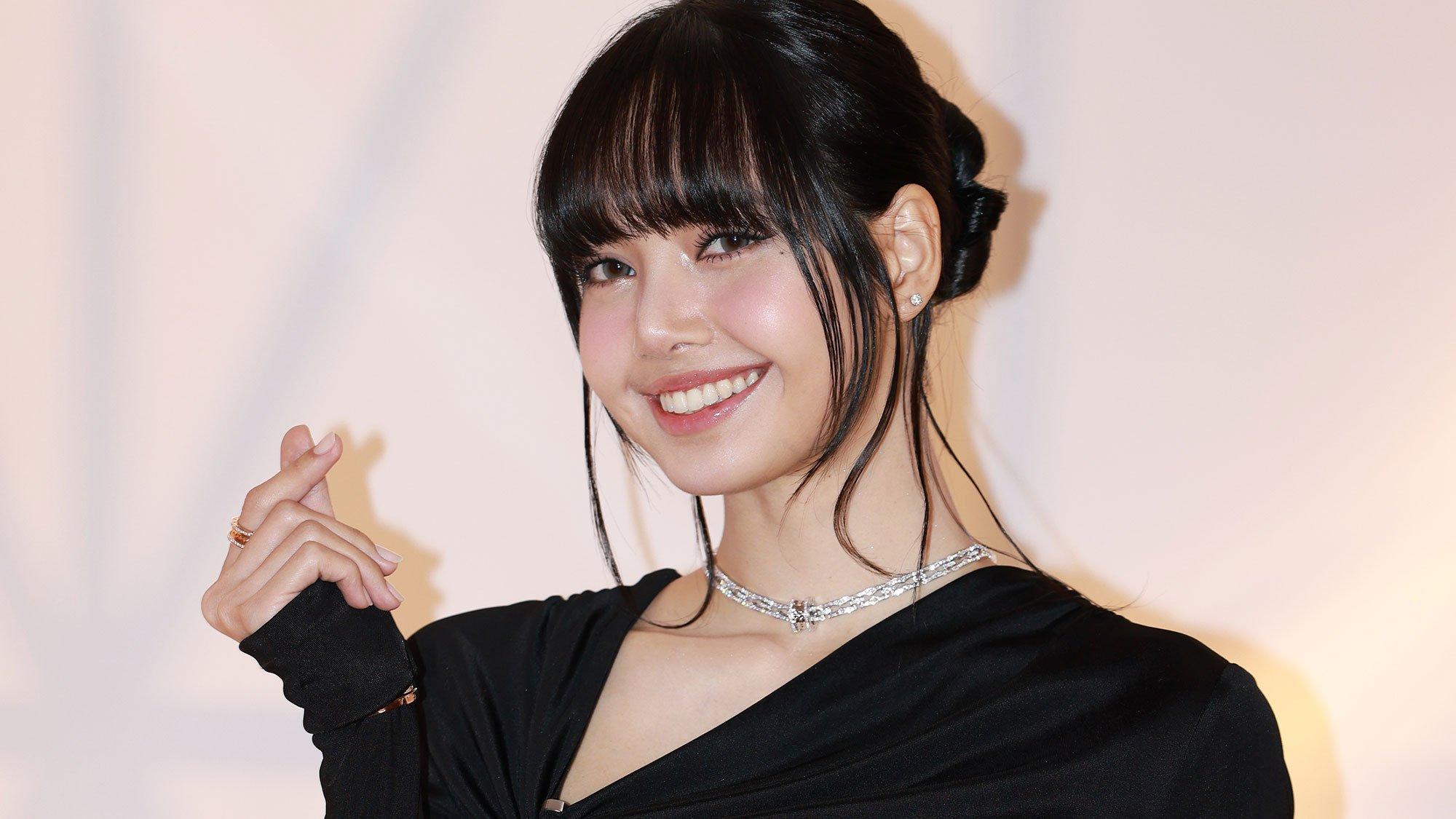
Photo: The Chosunilbo JNS/Imazins via Getty Images
list
New Music Friday: Listen To New Songs From LISA From Blackpink, Lil Nas X, Kelsea Ballerini, MC Lyte & More
Hot summer days require even hotter tunes. Here are some fresh-out-the-oven songs and albums by Hiatus Kaiyote, Lucky Daye, Headie One, Kaitlin Butts, and more.
We’ve been feeling the heat for a minute now, but summer is finally, officially, upon us.
What do you have on deck to soundtrack it? Perhaps you’re checking out Camila Cabello’s fourth offering, C,XOXO. Or Jxdn’s expectations-bucking new album, When the Music Stops. And there are so many other worthy candidates for your playlist — from Lupe Fiasco’s Samurai to Omar Apollo’s God Said No.
No matter where your stylistic compass points, this Friday release day has got something for you. As you gather your sunscreen and shades, let’s breeze through a cross-section of what’s out there.
LISA — "Rockstar"
K-pop loves its solo releases, showcasing how the various members of a group can shine individually while combining with ecstatic chemistry. Enter LISA, one-fourth of Korean titans BLACKPINK, who's already turned heads with her 2021 debut album, Lalisa.
"Rockstar" is another swing outside her main gig, featuring serrated chiptune production and LISA's commanding rap flow. The gritty, urban, futuristic video is a visual treat, and the chorus's boast of "Lisa, can you teach me Japanese?" is a multilingual flex — as well as a maddeningly unshakeable earworm.
Kelsea Ballerini & Noah Kahan — "Cowboys Cry Too"
The "Peter Pan" heavyweight and four-time GRAMMY nominee Kelsea Ballerini has called 2024 "a new chapter of music." Her collaboration with folk/pop singer/songwriter Noah Kahan, "Cowboys Cry Too," is the tip of the spear.
More than a month after the pair performed together at the 2024 Academy of Country Music Awards, their first recorded team-up is an aching, yearning ballad about breaking down a gruff exterior and revealing true emotions.
"Cowboys cry too/ They may not let 'em fall down in their hometown thinkin' they still got s*** to prove," Ballerini sings in the chorus. "That well runs deep/ But when he's showin' his skin, lettin' mе in, that's when he's toughest to mе."
Lil Nas X — "Here We Go!" (from the Netflix film 'Beverly Hills Cop: Axel F')
"So excited to release the best song of all time this friday!," Lil Nas X proclaimed on Instagram. (And on a Beverly Hills Cop soundtrack, no less!)
"Here We Go!" comes at an inflection point for the "J Christ" singer: "sorry I've been so scared with my art lately," he added in the same post. "I'm coming around to myself again. I will make you guys very proud."
This pro forma banger certainly inspires pride: tenacious lines like "I'm livin' and livin' I wanna die/ They tryna get even/ I'm beatin' the odds" will get under your skin. As for Beverly Hill Cop: Axel F, the Eddie Murphy joint will whiz to your screen July 3 via Netflix.
Lucky Daye — 'Algorithm'
Lucky Daye picked up a win for Best Progressive Album at the 2022 GRAMMYs, for Table for Two. After a slew of nominations for work with Beyoncé and Mary J. Blige, he's investigating the Algorithm.
The single "HERicane" was just a teaser, with songs like "Blame," featuring Teddy Swims; "Paralyzed," featuring RAYE;" and "Diamonds in Teal" expanding on and honing his soul-funk-R&B vision.
"Don't know pickin' sides/ 'Cause I'm rollin' in desire," he dreamily sings in the gently roiling "Diamonds in Teal." "I don't know which lie's true/ Or maybe I do, or maybe I'm you." It's a suitable mission statement wrapped in a stealthily seductive package.
Hiatus Kaiyote — 'Love Heart Cheat Code'
A jazzy, soulful, psychedelic band of Aussies, Hiatus Kaiyote has been wowing audiences for more than a decade. Whether through sampling or features, they've crossed paths with Drake, Anderson .Paak, and Beyoncé and Jay-Z.
Love Heart Cheat Code builds brilliantly on their last three albums: their 2012 debut Tawk Tomahawk, 2015's Choose Your Weapon, and 2021's Mood Valiant. Tracks like "Telescope," "Everything's Beautiful," and "Make Friends" are burbling brooks of atmosphere, groove and vibe.
Boulevards — 'Carolina Funk: Barn Burner on Tobacco Road'
Any fans of deep, pungent funk grooves should investigate Boulevards immediately. The project of mastermind Jamil Rashad, their new album Carolina Funk: Barn Burner on Tobacco Road tips its hat to yesterday's funk with a contemporary twist, bringing a refreshing spin on the well-trod template of syncopated basslines and stabbing horns.
Across highlights like "Do It Like a Maniac Part 1&2" and "Run & Move," Boulevards shows — once again — that few can nail this gritty sound quite like Rashad and crew.
Headie One — 'The Last One'
British drill-inflected MC Headie One first made a splash overseas with his 2023 debut album, Strength to Strength. Less than a year later, he's returning with The Last One.
Back in 2022, he hinted at the existence of his sophomore album in his non-album track "50s" — "The fans calling for 'Martin's Sofa'/ It might be the first single from my second," he rapped.
Helmed by that single, The Last One features Potter Payper, Stormzy, Fridayy, Skrillex, and more. The album is a leap forward in terms of production, scale and exploration.
Katlin Butts — 'Roadrunner!'
Any theater kid worth their salt knows at least a few bars from the musical "Oklahoma!"; country sensation Kaitlyn Butts has just unfolded it into an entire album.
"It's a love story but there's also a murder and a little bit of an acid-trippy feel to it at times; it's set in the same place where I come from," she said in a statement, noting she saw "Oklahoma!" with her parents every summer during childhood. "Once I got the idea for this album," she continued, "I couldn't believe I hadn't thought of it before, and it turned into something that completely encompasses who I am and what I love."
A laugh riot as well as a colorful, openhearted statement, Roadrunner! does the old Rodgers and Hammerstein chestnut good.
Read more: 5 Female Artists Creating The Future Of Country Music: Jaime Wyatt, Miko Marks & More
Amaarae — 'roses are red, tears are blue — Fountain Baby Extended Play'
Futurist Afropopper Amaarae made a gigantic splash with her second album, 2023's Fountain Baby — even Pitchfork gave it their coveted Best New Music designation.
That lush, enveloping album just got an expansion pack: roses are red, tears are blue — A Fountain Baby Extended Play is a continuation of its predecessor with six new songs. The oceanic "wanted," featuring Naomi Sharon, is a highlight, as is a remix of "Disguise" with 6LACK.
"Ooh, I'll be wanted/ I've been wanted," a pitch-shifted Sharon sings near the end, as if turning over the phrase. "Wanted" is one way to describe Amaraae's position in the music landscape.
Learn more: Meet The Latest Wave Of Rising Afrobeats Stars: AMAARAE, BNXN, Oladapo & More
MC Lyte — "King King" (feat. Queen Latifah)
The 50th anniversary of hip-hop may have come and gone, but hip-hop is forever. Today, legendary hip-hop pioneers MC Lyte and Queen Latifah continue to bear the flame of the genre as an elevating force with "King King," a conscious, uplifting offering.
"This is dedicated to all the kings and all the soon to be kings/ We're counting on you/ We love you/ This is for you, you and you and you," MC Lyte begins, while Latifah holds it down on the chorus with "This your crown hold it/ Even if it all falls down show it/ You know the world is watching now I know you get tired from keepin' it all together/ We need you."
During Women's History Month in March, MC Lyte released "Woman," the first single from her upcoming album, featuring hip-hop icons Salt (of Salt 'N Pepa), Big Daddy Kane, and R&B singer Raheem DeVaughn. MC Lyte's first new album in nearly a decade drops this summer; keep your eyes and ears peeled.
Learn more: 9 Teen Girls Who Built Hip-Hop: Roxanne Shante, J.J. Fadd, Angie Martinez & More
Latest News & Exclusive Videos

Watch Girl Ultra Share Her Cherished Fender Guitar
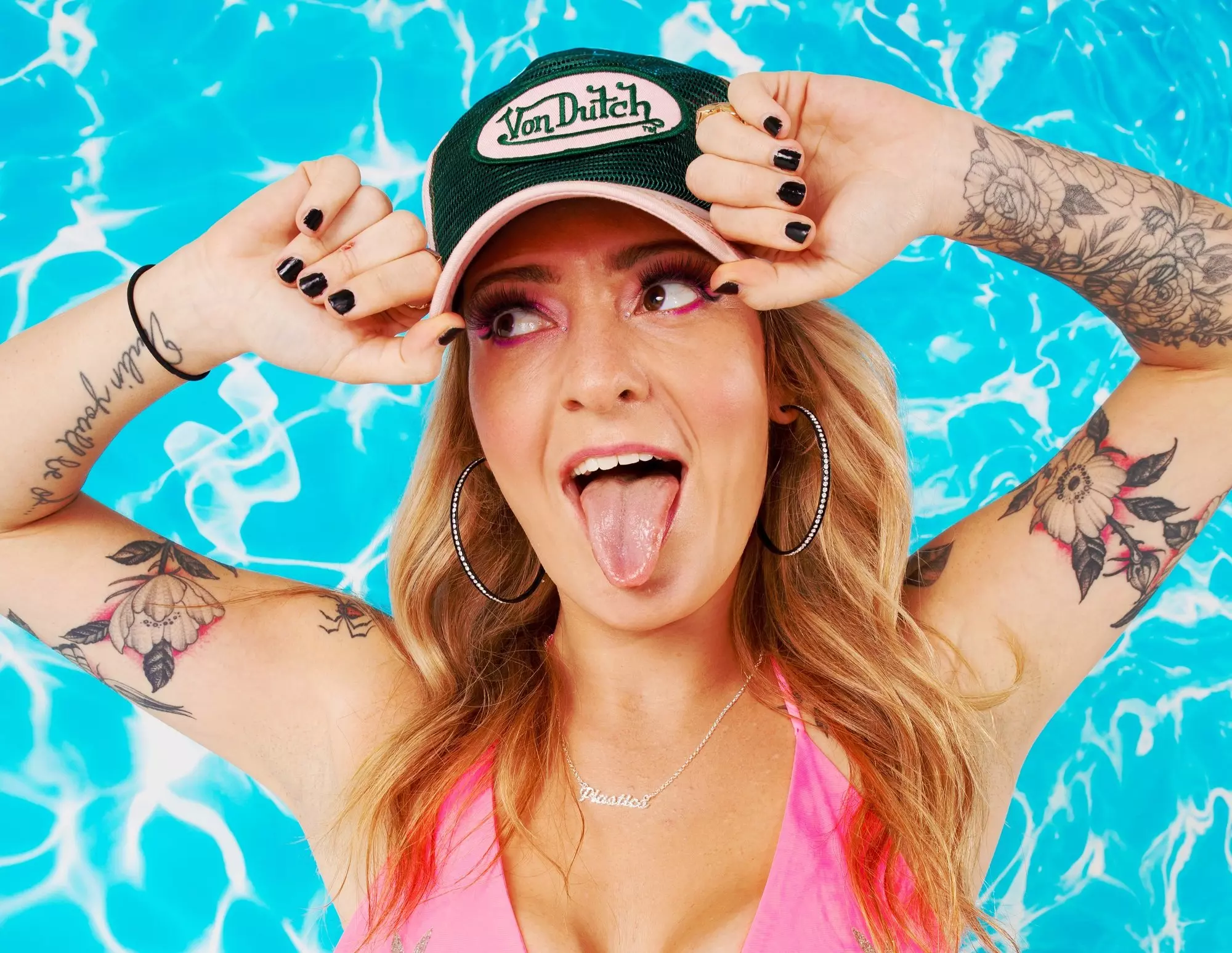
Meet Scene Queen, The "Chaotic Mess" Cleaning Up The Alternative Scene

Celebrating 30 Years Of Essence Fest: How New Orleans & Multi-Generational, Diasporic Talent Create The "Super Bowl Of Culture"

Watch Tiera Kennedy Perform "I Ain’t A Cowgirl"

Celebrating Missy Elliott: How The Icon Changed The Sound, Look & Language Of Hip-Hop
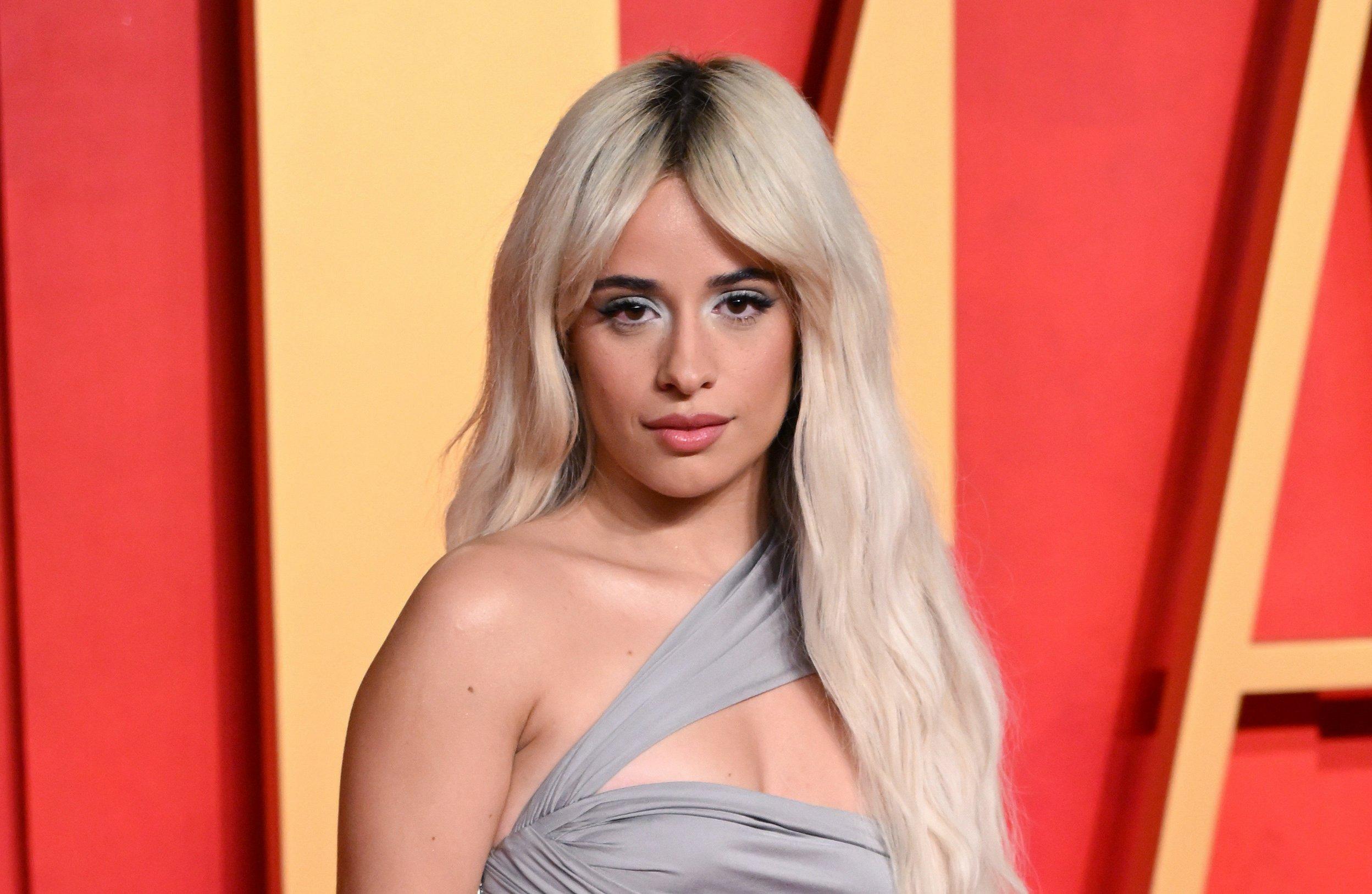
Photo: Karwai Tang/WireImage
feature
Camila Cabello's Sonic Evolution To 'C, XOXO': How She Went From Pop Princess To Club Star
With her fourth album, 'C, XOXO,' Camila Cabello introduces a new sound inspired by the sweaty dance floors of the Miami club scene. Here's a breakdown of the musical shape-shifting that's led the star to her hyperpop venture.
When Camila Cabello unleashed the singles "I LUV IT" and "HE KNOWS" from her highly anticipated fourth album C, XOXO this past spring, it was obvious that the pop superstar had completely flipped her previous sound on its head. Decidedly hyper-pop, the album is tailor-made for the club, with Cabello saying it's all sonically dedicated to the late-night culture of her home city of Miami.
While her new sonic direction might be a bit jarring for those who were fans of her previous bubblegum flavors or Latin-inspired tracks, it's not entirely surprising that she's trying something new with this album. Since her 2016 departure from the girl group Fifth Harmony, the singer has been known to take musical chances when it comes to her career. Now, she adds frenetic club tracks to the list.
From the innocence of her breakthrough to a more grown-up sound and every detour in between, this is how Camila Cabello's artistic voice has evolved through the years.
Reality Show Breakout: Classic Covers
It may seem hard to believe now, but there was a time when Cabello was just another singing talent vying for her big break when she attended a cattle call audition for "The X Factor." Cabello's interest in performing actually came as a shock to her parents. "She was so shy, so shy," her mother Sinuhe told the New York Times in 2018. "We didn't even think music was a possibility for her."
Oddly enough, her successful audition with Aretha Franklin's soul classic "Chain of Fools" never even aired (the show reportedly couldn't get the rights to the song). Nevertheless, you know the rest: she was grouped together with Ally Brooke, Normani, Dinah Jane, and Lauren Jauregui, and Fifth Harmony was born. The group quickly became known for powerhouse vocals on covers ranging from Elie Goulding's "Anything Could Happen," to Cabello belting out solo while performing The Beatles classic "Let It Be" during their stint on the show; the quintet ultimately placed third.
Girl Group Launching Pad: Party-Friendly Anthems
As part of Fifth Harmony, Cabello's initial sound was decidedly pop-dance songs, perfect for a high school prom — a fitting style for the then teenage star. Songs like their dynamic debut single "Miss Movin' On", the playfully sexy "Work From Home," and horn-tinged "Worth It" cemented them as bona fide pop breakouts. But eventually, Cabello realized that her and her group mates were drifting apart.
"I started distancing myself from the group vision," she admitted to the Call Me Daddy podcast earlier this year. "It felt like you know they were still really passionate and into that and so, I was just like, 'I'm not happy here anymore, it doesn't feel aligned.'"
With that, Cabello shocked fans when she departed the group in December 2016. "Fifth Harmony wasn't the maximum expression of me individually," she told Seventeen a couple months after her surprise departure, alluding to her shift to more personal songs. "My fans are really going to know me from the music I'm writing. My goal is to be brave and open up my soul."
Solo Stardom: Personal Pop Confections
By the time Cabello's self-titled debut studio album was released in 2018, it was apparent that leaving the group that made her a star would pay off. Her initial forays into solo stardom came in the form of collaborations, first in 2015 with eventual on-and-off flame Shawn Mendes on "I Know What You Did Last Summer," and then with Machine Gun Kelly for 2016's Pop Airplay-topping (and Fastball sampling) "Bad Things." But her 2017 collab hinted that she was destined to be a superstar: "Havana."
Featuring Young Thug, the salsa-inspired song earned Cabello her first No. 1 hit on the Billboard Hot 100. It also marked a difference from her former bubblegum sound, and proved the Cuba-born star could successfully bridge the gap between mainstream success and her own story. Meanwhile, the single "Never Be The Same" (for which she recruited Frank Dukes, known for his work with Lorde and Post Malone) proved she could embody a more adult pop sound.
"I feel like the best way to come up with something new and different is just to be the you-est you possible," Cabello told the New York Times when the album was released. "If you pull from all the different little parts of yourself, nobody can replicate that."
Cabello also embodied these hallmarks for her sophomore album, Romance, which featured a heartfelt ode to her dad, "First Man," and several songs inspired by her, well, romance with Mendes. That included "Señorita," which actually featured Mendes; the song quickly became Spotify's biggest streaming song of the summer of 2019. And with a sultry Latin flair, "Señorita" offered another nod to her roots — and the sounds that would soon be the focus of her music.
Sonic Trip Down South: Latin Roots
With the success of songs like "Havana" and "Señorita" in mind, Cabello made her junior album a full-on salute to her Cuban heritage in the form of Familia. Each track is decidedly Spanglish, from lead single "Bam Bam," an inspired collaboration with Ed Sheeran (who featured her on his own Latin-inspired track, "South of the Border," in 2019), to "Hasta los Dientes,"which featured the Argneitian star María Becerra.
"This [album] has been finding my way back," she explained to GRAMMY.com at the time. "A big part of that is my roots, and my heritage. I want to spend the most time in Latin America and in Mexico because it just makes me feel like myself."
According to the star, the album bolstered her confidence; in turn, it helped her fully feel free to express herself. "There's no walls of any of that other, like, ego stuff up. So that's why [Familia] was the most fun experience, and what I think is my best work so far."
Latest Chapter: Hyperpop Diversion
With the first single from her fourth project, "I LUV IT" (featuring Playboy Carti), it was obvious Cabello was about to embark on yet another complete reconstruction of her sound. The song served as a tantalizing hint that the singer's next album, C, XOXO, ventured in a hyperpop direction. In reality, it's a concept album based on long, late, wild, and sometimes melancholy nights in Miami. Second single, "HE KNOWS" with Lil Nas X, marked further proof.
"We wanted to see how we could take these cadences that have a certain swagger and contrast it with beautiful music and pretty chords and lush guitar," Cabello told PAPER Magazine of her latest process earlier this year. But while not every song exhibits that oft-discussed Charli XCX-influenced hyperpop sound, her aforementioned lead singles arguably do."We were mixing and matching to find something new and inspiring. If it's a sweet melody, let's make the music scary. If she has a rap flow, let's make the music acoustic."
The album's tracks also develop with an ominous aura. "Pretty When You Cry," for example, sounds like it's sung while sitting on a sidewalk outside the club one late night with mascara streaking; in the distance the listener hears the warped, low echoes of an inspired sample of Pitbull's "Hotel Room Service." As a result, the music is the starkest contrast yet from her bubblegum past — further proof that Cabello's penchant for genre-swapping has turned into a singular aspect of her superstar career.
Latest News & Exclusive Videos

Watch Girl Ultra Share Her Cherished Fender Guitar

Meet Scene Queen, The "Chaotic Mess" Cleaning Up The Alternative Scene

Celebrating 30 Years Of Essence Fest: How New Orleans & Multi-Generational, Diasporic Talent Create The "Super Bowl Of Culture"

Watch Tiera Kennedy Perform "I Ain’t A Cowgirl"

Celebrating Missy Elliott: How The Icon Changed The Sound, Look & Language Of Hip-Hop
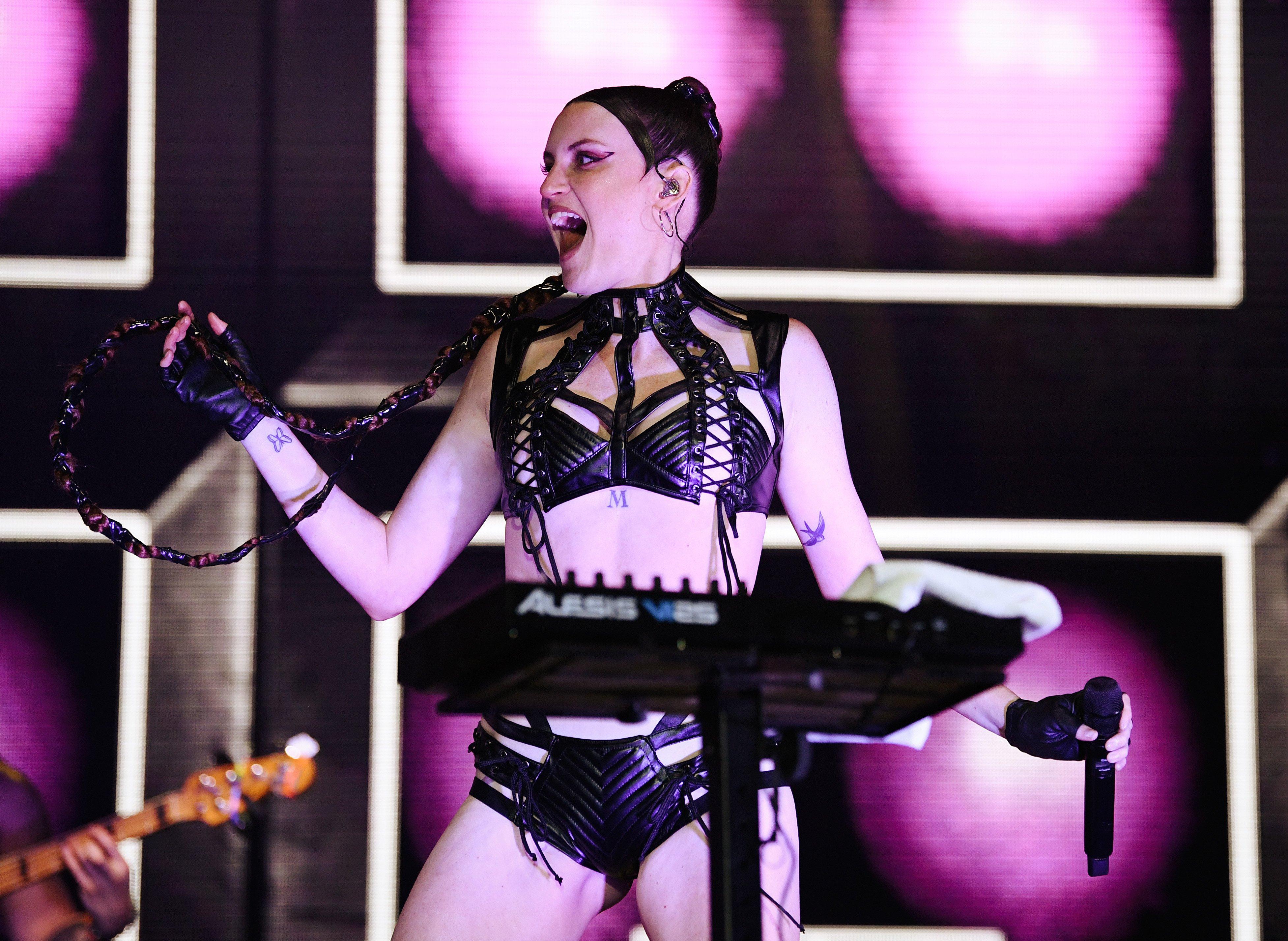
Photo: Chelsea Guglielmino
list
5 LGBTQIA+ Record Labels To Check Out: Get Better Records, So Fierce! And Others
During Pride Month and beyond, LGBTQIA+ owned and operated record labels are diligently working to provide queer artists a platform while providing more visibility for their communities.
Music is often a unifier — something that ties us together, allowing us to bond over our shared experiences. This is especially true among LGBTQIA+ communities. Whether you’re hearing MUNA’s pop songs crackle over speakers in a record store or finding ethereal deep-cut Ethel Cain demos on SoundCloud playlists, the queer community find an inevitable connection in the artists they seek out.
For decades, queer artists have cultivated hidden scenes in rave, techno and dance music. Today, a new generation of LGBTQIA+ artists are shaping contemporary pop, from Reneé Rapp and Towa Bird, to Chappell Roan and RYL0. However, we cannot acknowledge this mainstream resurgence of queer talent without reflecting on the limitations which hold back the wider music industry from becoming more accommodating to LGBTQIA+ artists.
A 2024 study from Queer Capita in partnership with Billboard revealed that 94 percent of music business participants feel that the industry fails to provide adequate resources or representation for the queer community. However, there's a severe lack of data on the number and scope of queer-specific record labels (those that are LGBTQIA+ owned, run or whose rosters reflect that demographic) — a shocking shortfall considering how queerness shapes the music industry financially. A 2022 "The Power of LGBTQ+ Music" report by Luminate revealed that, queer fans spend an average of 20 percent more on merch and, generally, spend $72 more on music than the general public.
Read more: 15 LGBTQIA+ Artists Performing At 2024 Summer Festivals
Queer music is profitable and shaping listening trends. Although LGBTQIA+ acts are eagerly supported, — and major labels seem to be taking steps to increase queer representation on a corporate level and on their rosters — the wider industry must continue to support the indies and queer imprint labels that are fighting to survive.
These queer indie record labels are not only highlighting LGBTQIA+ artists and creating accessible, accommodating spaces, but they're often doubling down on the importance of visibility. As an artist or employee, it wouldn’t hurt if your boss (label manager, record executive, press assistant, etc) was queer too, right? This integration and inclusivity is essential when building equitable infrastructure in music.
So, now with Pride Month upon us, there’s been no better time to reflect on the vital resource that LGBTQIA+ labels provide and the ways they encourage our industry to do and be better. These labels are much more than champions of queer talent; they’re signifiers of independent ethos and resilience that keeps music communities thriving.
From the late-night voguing parties in Shanghai that inspired Medusa Records to the against-the-grain roster of Saddest Factory Records, here are five global LGBTQIA+ record labels showcasing the necessity and irreplaceable talent of queer creatives.
Get Better Records
Location: Philadelphia, Pennsylvania
Artists to know: Alice Bag Band, La Dispute, Victoria Park, ZORA
Get Better Records has been around since 2009 and, over its 15 years, has become one of the most notable queer and trans-owned labels. Get Better was formed by Control Top drummer Alex Lichtenauer and their friend Nick King, though the label is now solely run by Lichtenauer. Get Better's roster platforms punk, alternative, experimental and hardcore acts.
Whether you’re looking for the intimate sound of Suzie True, the queer hardcore attitude of Baltimore newcomers No Doubt or want to experience the reverie of how Bacchae are twisting underground DC punk into their own boot-stomping beat, Get Better Records has become a hotspot for innovative acts bringing their distinct style to the music industry.
A proudly self-described “queer and trans owned” record label with a simple motto — inspiring everyone to practice and play. Through their committed gritty spirit, Get Better Records is summative of what we hope to see for all LGBTQIA+ artists: unconditional acceptance of their experiences and art.
Saddest Factory Records
Location: Los Angeles, California
Artists to know: MUNA, Charlie Hickey, Claud, Sloppy Jane
While technically an imprint of Dead Oceans (the label Phoebe Bridgers is signed to), the arrival of her Saddest Factory Records was a welcomed one. Founded in 2020, Saddest Factory Records emerged off the back of Bridgers’ ongoing success as a cult fan favorite and served as an important reminder — the best creative decisions for LGBTQIA+ artists do, in fact, come from our own community.
Saddest Factor's roster features a queer-charged collection of artists who deserve more eyes and ears. If you’ve not already here for queer fandom faves Claud, MUNA, or Sloppy Jane, you’ve got some work to do this Pride Month!
So Fierce
Location: Toronto, Canada
Artists to know: Oceane Aqua-Black, Gisèle Lullaby, Jay Light
Founded by musician Velvet Code during the pandemic in 2020, So Fierce wears its pride on its sleeve — by name and artist roster. This inclusive music company pulls together a diverse mix of LGBTQIA+ talent, from drag queens to pop singers, and proves there’s space for all types of queer representation.
With over 20 years of experience producing for big names like Venus, Icesis Couture and Lady Gaga, Velvet Code has cultivated a space that gives LGBTQIA+ artists a platform to belong. Their roster includes names like Icesis Couture, season 2 winner of Canada’s "RuPaul’s Drag Race," and Miami-based singer/songwriter Deity Jane.
Medusa Records
Location: Shanghai, China
Artists to know: Enema Stone, Michael Cignarale
Based in Shanghai city, a monthly queer club night transformed from a queer-friendly communal space to something much bigger. These unforgettable eccentric Medusa parties hosted – filled with voguing, queens and pounding psytrance music – became pivotal underground expressions of Shanghai’s LGBTQIA+ nightlife.
As Medusa Records, founders Michael Cignarale and Sam “Mau Mau" wanted to emulate the ecstasy of queer, unapologetic existence. "The label will channel Medusa’s sweaty midnight moments into a distinctive voice, embodied by musical and multimedia collaborations,” they said in a press release. Through the label, they hoped "to connect the emerging Chinese queer community with a global audience."
Medusa Records works with local and international DJs, VJs, producers, vocalists, visual artists and others. Their roster features the wonderfully queer, camp and colorful stylings of resident drag performer and musician Enema Stone, as well as DJ Michael Cignarale.
Outside their label, Medusa continues to give back during their sweaty, glitter-doused parties, where they host guest DJs and performers such as the Carry Nation, Chris Cruse, Octo Octa, Eris Drew, Nick Monaco, Chrissy, Jeffery Sfire, and Boris.
Whether you’re attending an IRL club night or cruising their online presence, Medusa Records know how to keep the beat going – and you’ll feel like you’re caught up in a never-ending party.
Boudicca
Location: London, United Kingdom
Artists to know: Samantha Togni, Wallis
If music labels and party hybrids are your thing, Boudicca may be your next favorite destination.
Starting out as a queer club night in 2019, Boudicca was founded by producer and DJ Samantha Togni and quickly became a hot spot for queer techno lovers. Now, the London-based party platform and record label is all about hitting high BPMs, championing hedonistic electronica, and giving space to under-the-radar non-binary, womxn and trans musicians.
Regularly hosting or collaborating in queer club nights and DJ sets, Boudicca’s roster pushes electronica to its limits. The label has released a series of exhilarating crossover compilations: Pure Bones, Dreams That I Can't Quite Remember, and Dark As It Gets, each of which features game-changing acts such as Rotterdam-based duo Animistic Beliefs — who blend global club music, techno and IDM — to Peachlyfe, an incredible "hydra-sonic" non-binary musician.
Listen To GRAMMY.com's 2024 Pride Month Playlist Of Rising LGBTQIA+ Artists
Celebrate Pride Month

5 LGBTQIA+ Record Labels To Check Out: Get Better Records, So Fierce! And Others
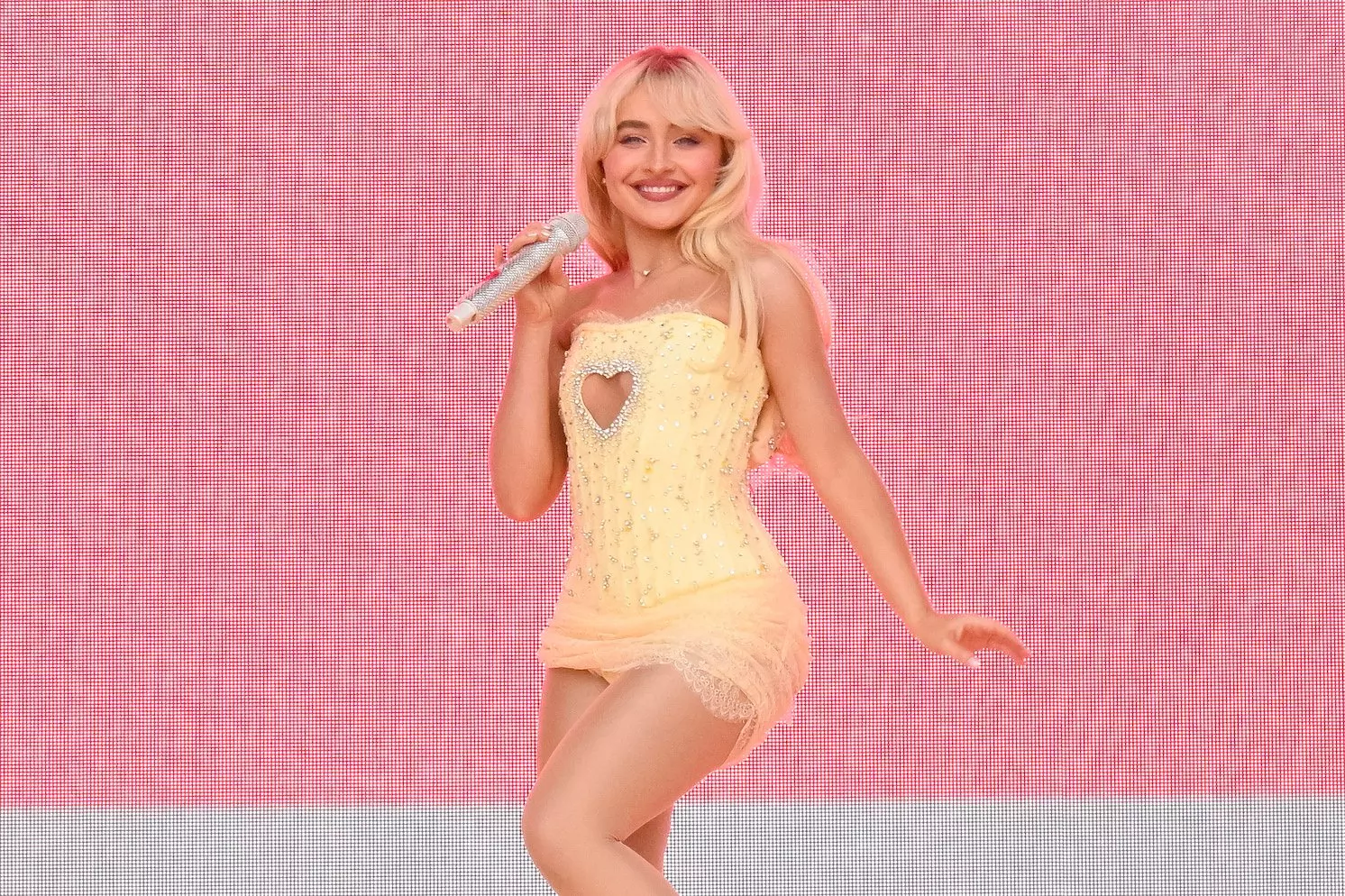
9 New Pride Anthems For 2024: Sabrina Carpenter's "Espresso," Chappell Roan's "Casual" & More
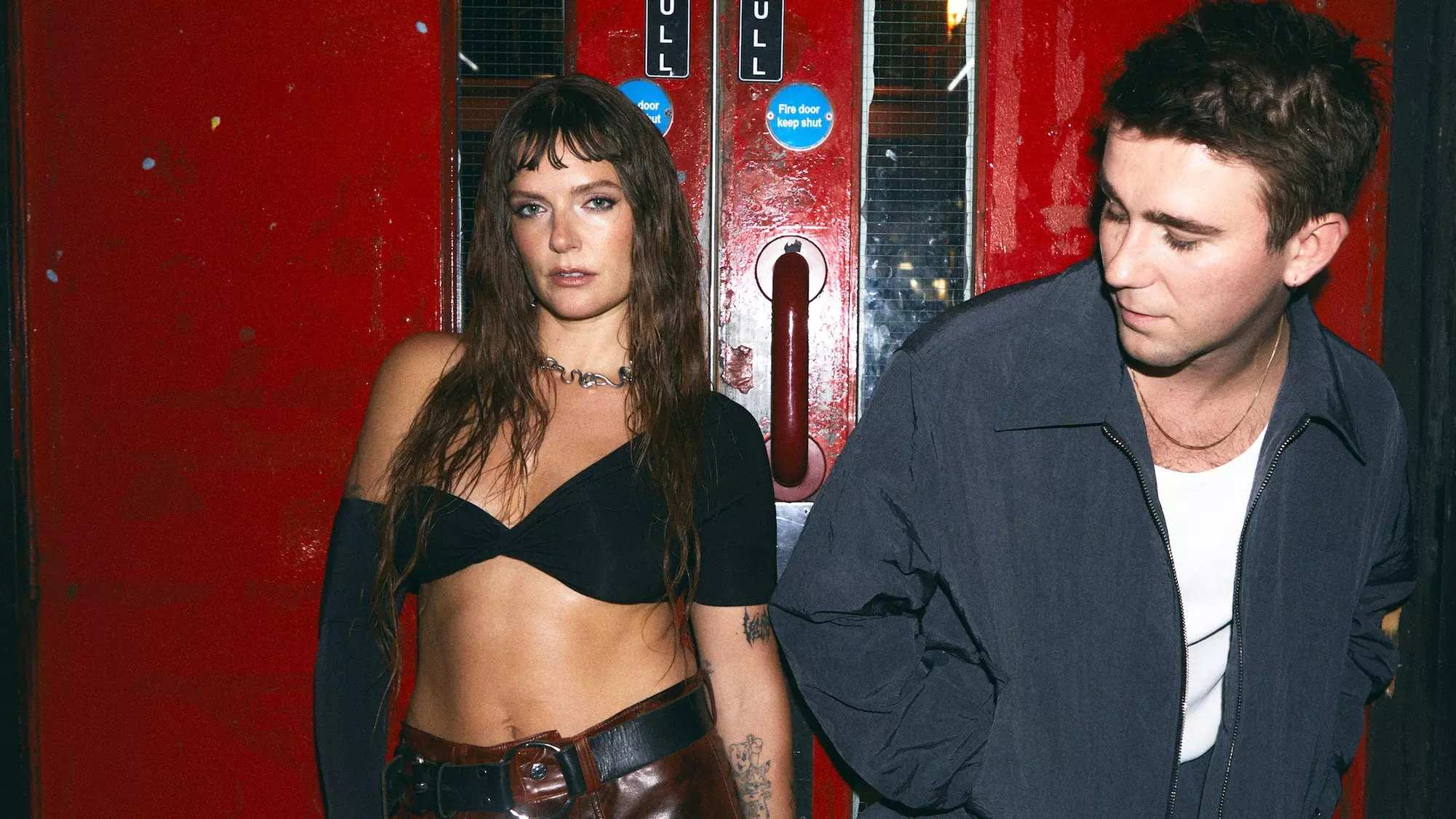
Tove Lo & SG Lewis Crafted Sweaty New EP 'HEAT' In Celebration Of Their Queer Fans
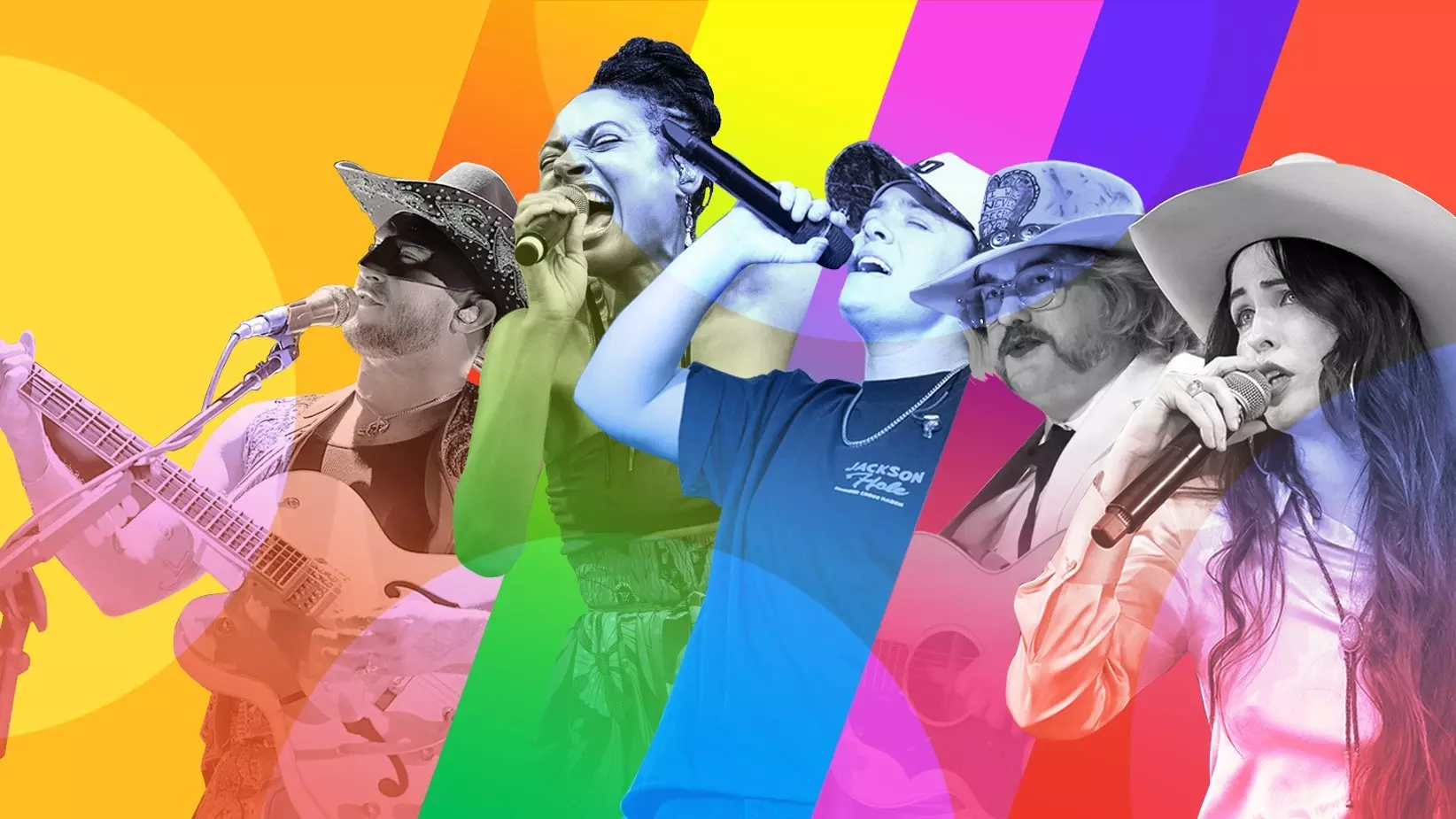
How Queer Country Artists Are Creating Space For Inclusive Stories In The Genre
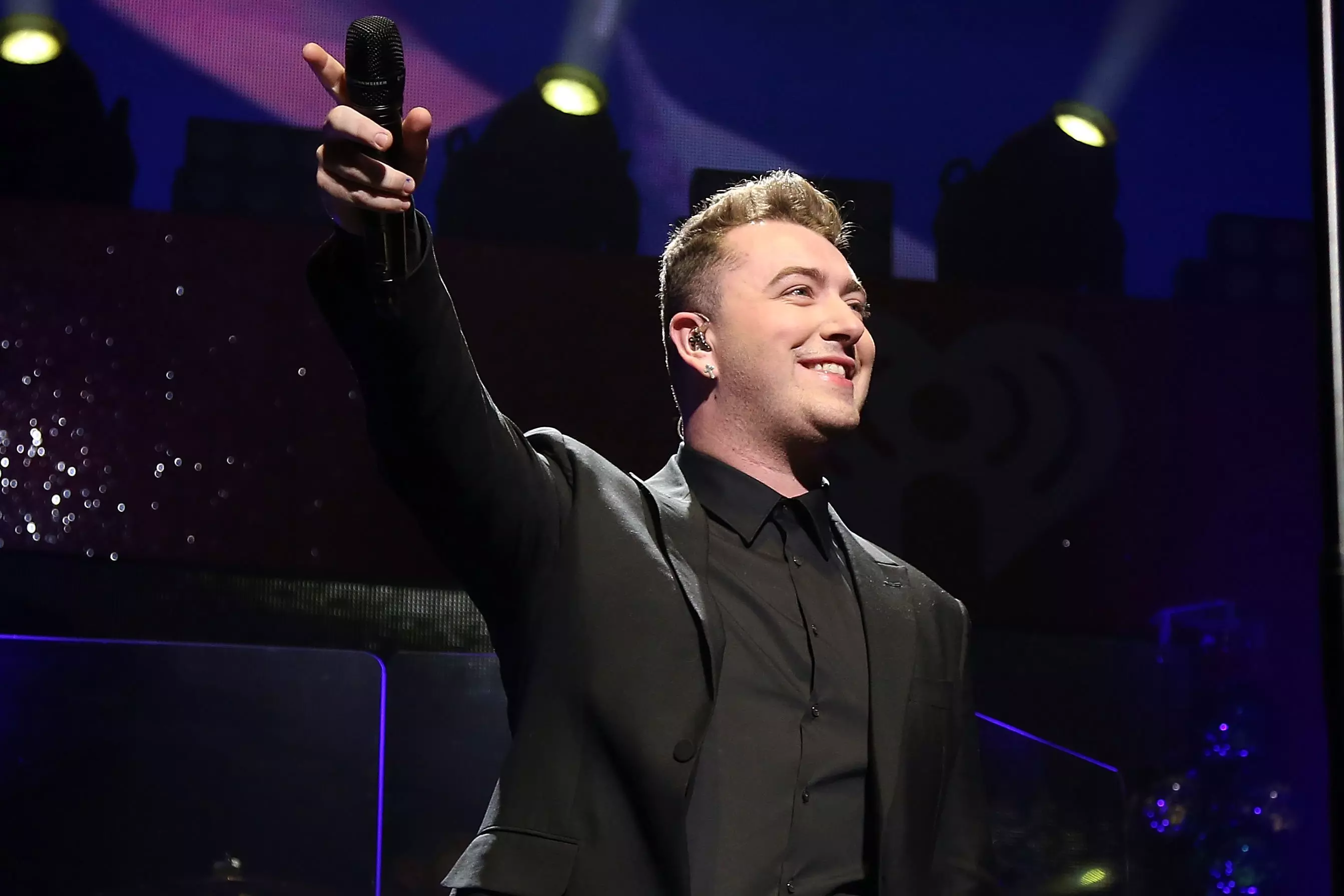
How Sam Smith's 'In The Lonely Hour' Became An LGBTQIA+ Trailblazer
